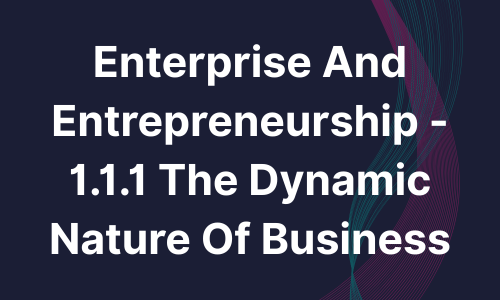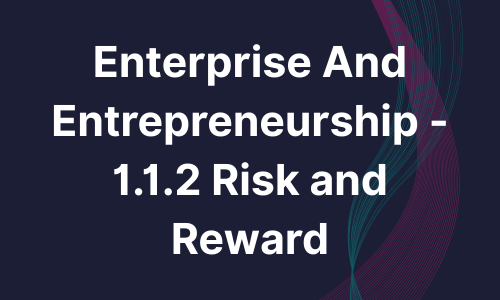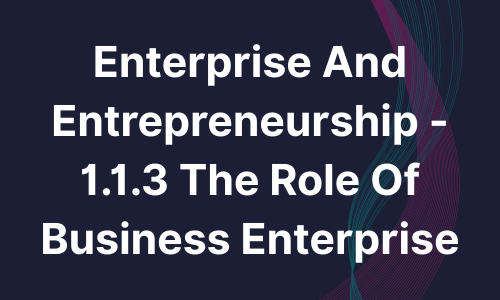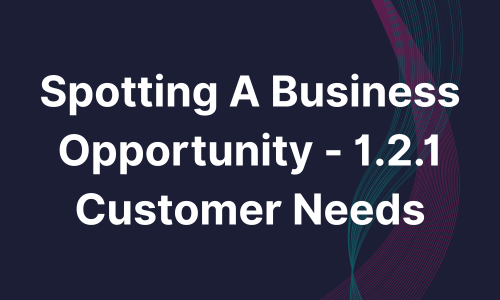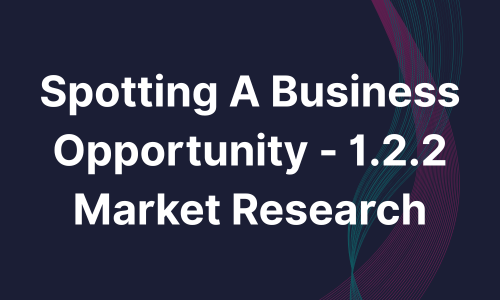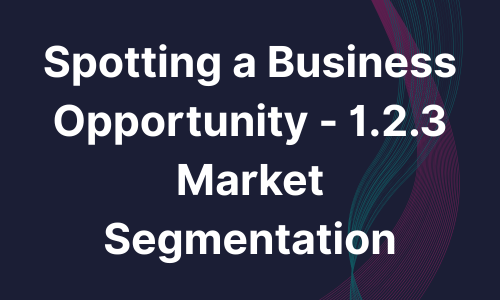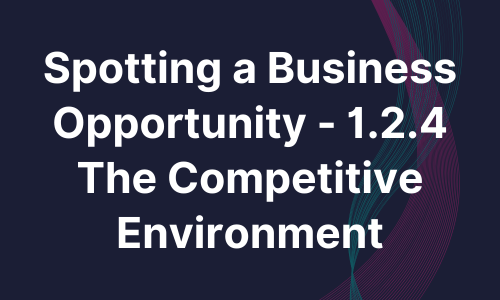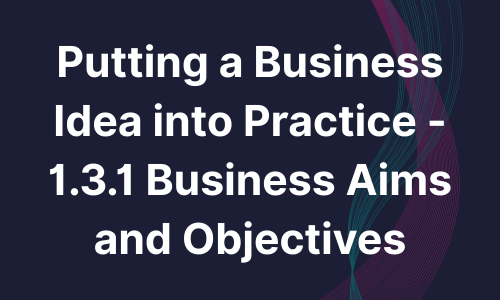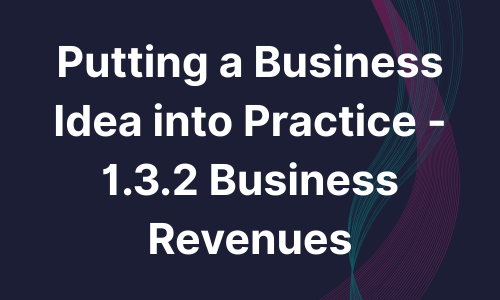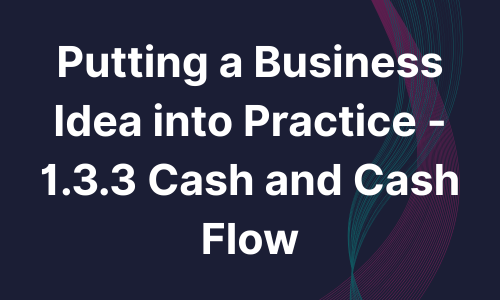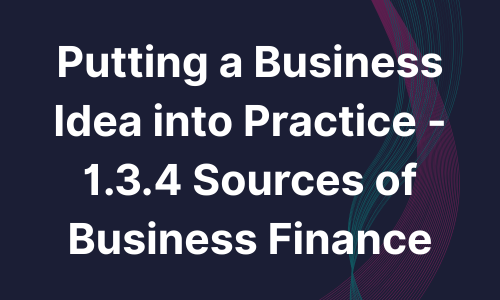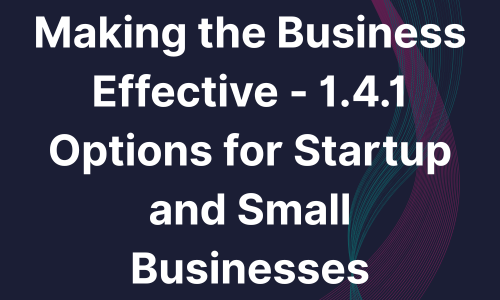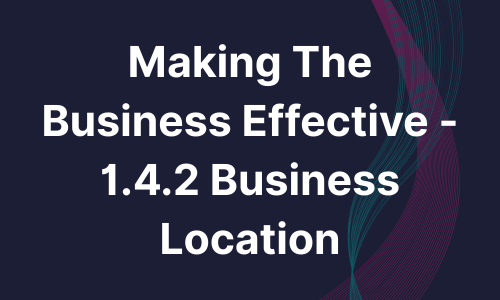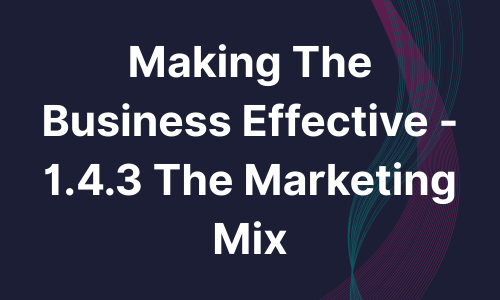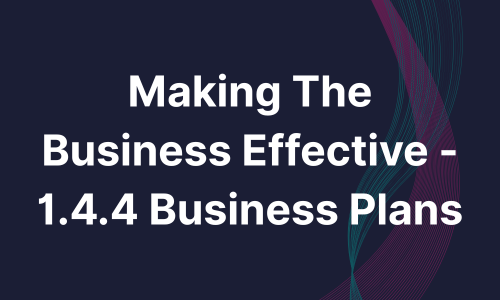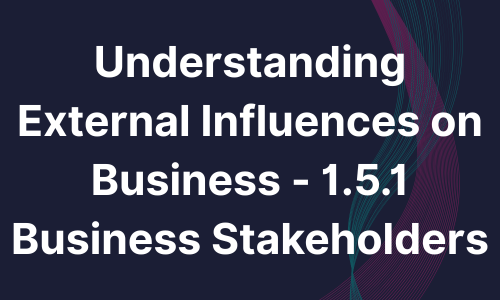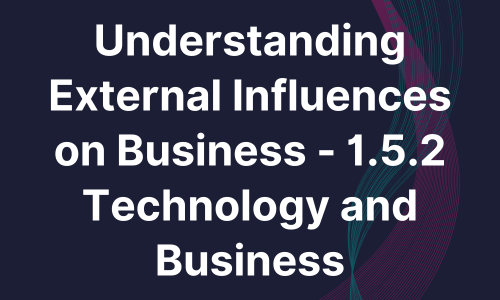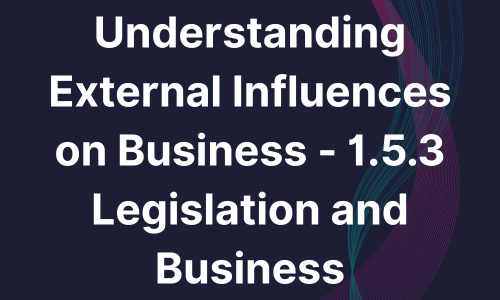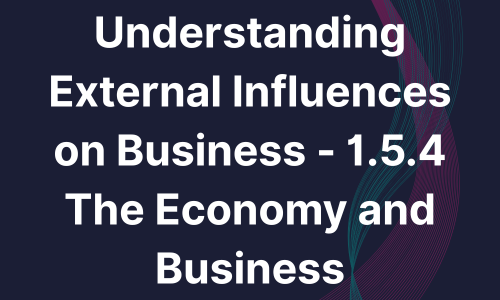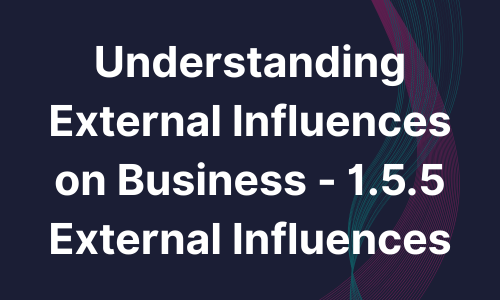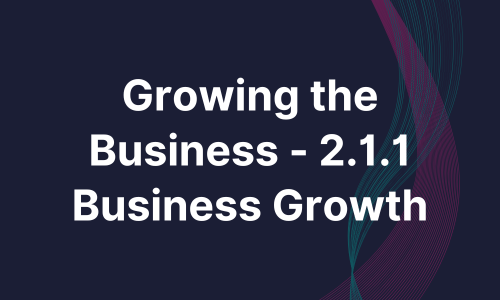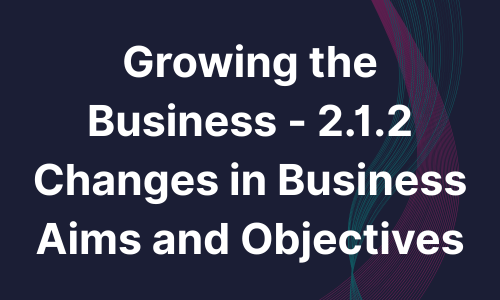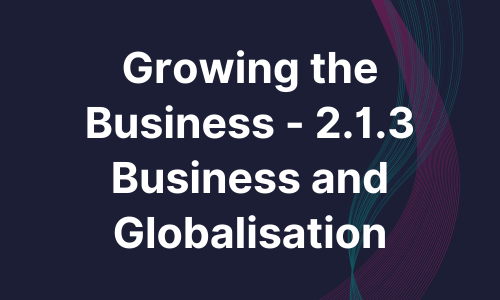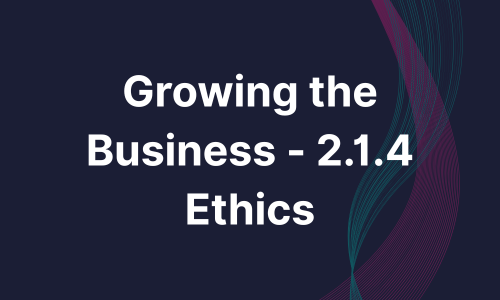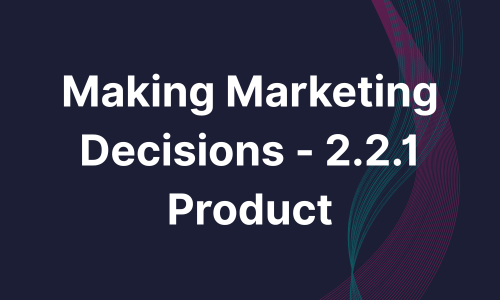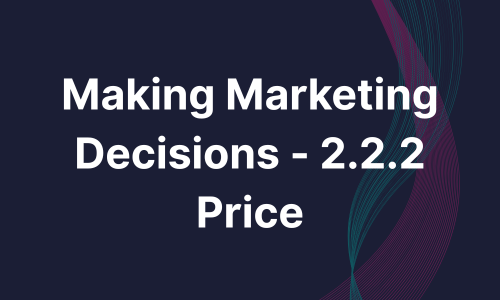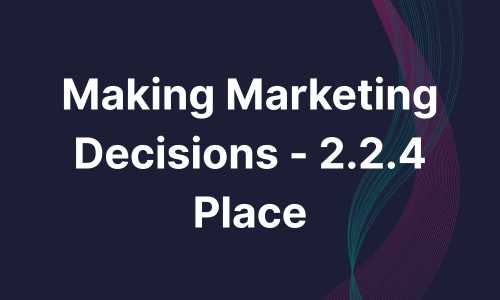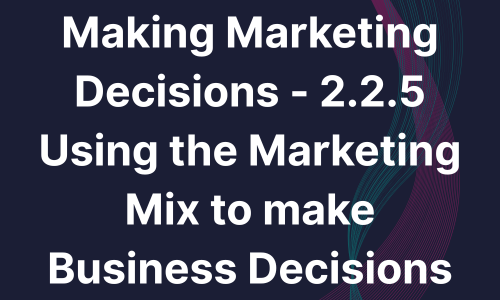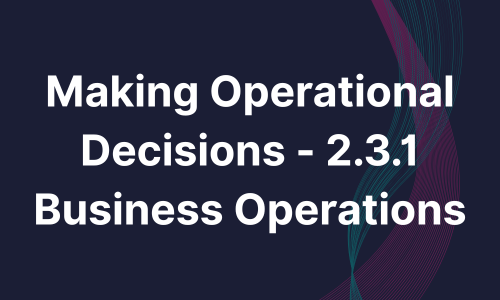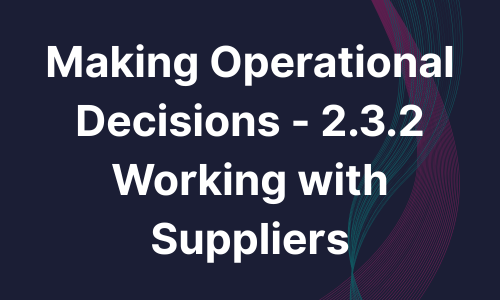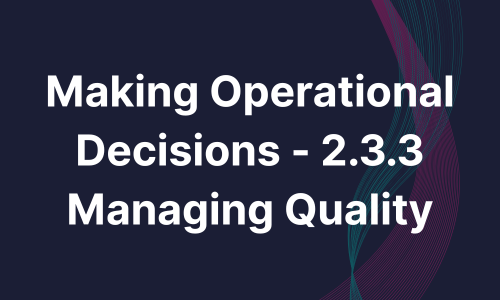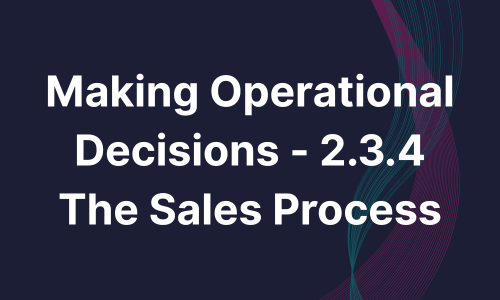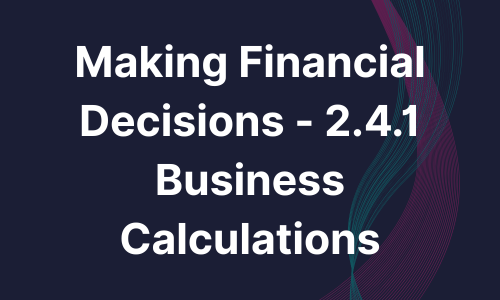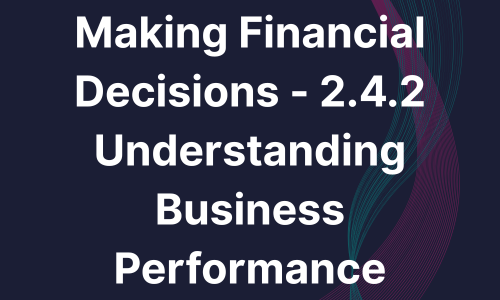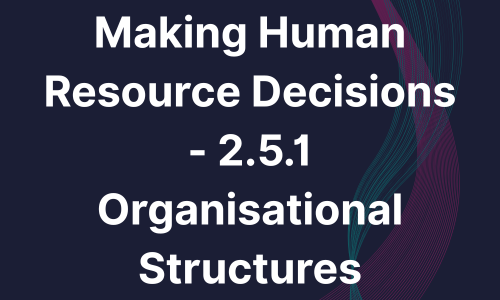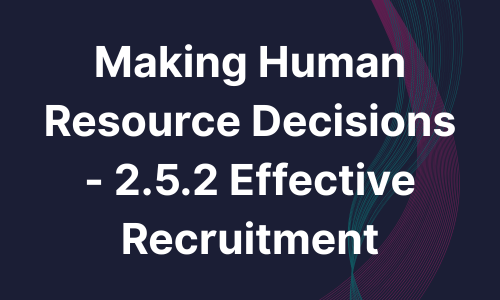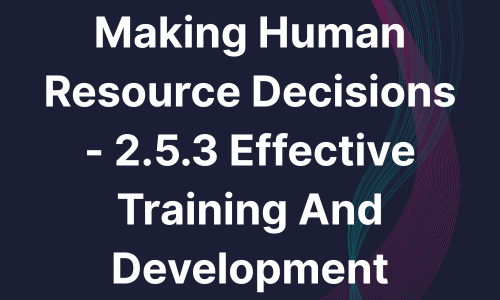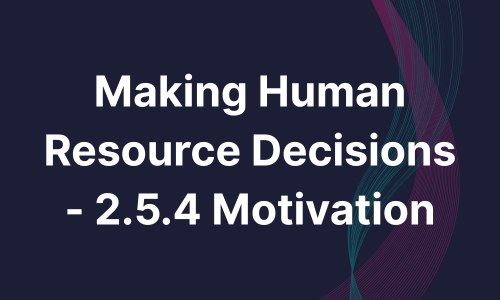Pearson Edexcel GCSE Business (1BS0) Syllabus: Your Comprehensive Guideb
Lessons, Resources & Insights
Pearson Edexcel GCSE Business (1BS0) Syllabus: Your Comprehensive Guideb
Lessons, Resources & Insights
Welcome to the definitive guide for the Pearson Edexcel GCSE Business (1BS0) qualification. This page is meticulously crafted for students, teachers, and parents seeking an in-depth understanding of the Edexcel GCSE Business syllabus. Whether you’re embarking on your GCSE journey, teaching the next generation of entrepreneurs, or supporting a student through their studies, Enterprise Skills provides unparalleled resources to master this crucial subject.
What Makes the Pearson Edexcel GCSE Business (1BS0) Unique?
The Pearson Edexcel GCSE Business (1BS0) stands out for its practical, real-world approach to business studies. Unlike other qualifications that might focus heavily on theory, this Edexcel GCSE Business syllabus emphasizes applying business concepts to contemporary scenarios. It encourages critical thinking, problem-solving, and an understanding of the dynamic global business environment. Students delve into the intricacies of small and large businesses, exploring how they operate, grow, and respond to challenges, making this an incredibly relevant and engaging GCSE Business guide.
Course Structure and Assessment for Edexcel GCSE Business
The Pearson Edexcel GCSE Business (1BS0) is structured to provide a holistic view of the business world. The qualification is typically assessed through two externally examined papers:
- Paper 1: Investigating Small Business – Focuses on key business concepts, decision-making, and the operations of small businesses. This paper assesses understanding of business activity, influences on business, business operations, and human resources.
- Paper 2: Investigating Large Business – Expands on the concepts introduced in Paper 1, applying them to larger national and global businesses. Topics include marketing, finance, and the external environment affecting business.
Both papers require students to demonstrate their knowledge and understanding, apply business concepts to various contexts, and analyse and evaluate business information to make reasoned judgments. This rigorous assessment ensures a thorough grasp of the Edexcel GCSE Business syllabus.
Skills Developed and Future Pathways with GCSE Business
Studying the Pearson Edexcel GCSE Business (1BS0) equips students with a diverse set of transferable skills essential for future success. Beyond a deep understanding of business principles, students develop analytical skills, data interpretation, financial literacy, and strategic thinking. This GCSE Business qualification is an excellent foundation for further education in A-Level Business, Economics, or Accounting, and opens doors to university courses in Business Management, Marketing, Finance, and Entrepreneurship. For those considering vocational routes, it provides a strong base for apprenticeships and entry-level roles in various industries. It\’s more than just a syllabus; it\’s a springboard for career and academic advancement.
How Enterprise Skills Supports Your Edexcel GCSE Business Journey
At Enterprise Skills, we are dedicated to supporting every student, teacher, and parent navigating the Pearson Edexcel GCSE Business (1BS0) syllabus. Our platform offers a wealth of resources, from interactive lesson materials and revision guides to practice questions and expert insights, all tailored to the Edexcel GCSE Business curriculum. We aim to simplify complex topics, enhance understanding, and boost confidence, ensuring that every learner can achieve their full potential in this vital GCSE Business qualification. Explore our tools today and transform your learning or teaching experience for the Pearson Edexcel GCSE Business (1BS0).
Your Journey into the World of Business: The Pearson Edexcel GCSE (9-1) Business Syllabus
The Pearson Edexcel GCSE (9-1) in Business is your gateway to understanding the exciting and ever-changing world of commerce. This course is structured into two engaging themes, taking you on a journey from the initial spark of a business idea to the complexities of managing a growing enterprise. Whether you see yourself as a future entrepreneur or a key player in a large corporation, this syllabus provides the essential knowledge and skills for success.
Theme 1: Investigating a Small Business
This theme puts you in the shoes of an entrepreneur. You will begin by exploring the dynamic nature of business, understanding where new ideas come from and the balance of risk and reward. You will learn how to spot a business opportunity by identifying customer needs and conducting effective market research. The course will guide you through the process of putting a business idea into practice, from setting aims and objectives to understanding revenues, costs, and profits. You will also get to grips with the crucial role of cash flow and the various sources of finance available to a start-up. Finally, you will learn about making the business effective, covering business ownership structures, location decisions, the marketing mix, and the importance of a solid business plan. The theme concludes by examining the external influences on a business, including stakeholders, technology, legislation, and the economic climate.
Theme 2: Building a Business
Building on the foundations of Theme 1, this section explores the challenges and decisions involved in growing a business. You will investigate different methods of growth, both internal and external, and how a business’s aims and objectives evolve over time. The theme expands to a wider context, considering the impact of globalisation, the barriers to international trade, and the influence of ethics and environmental considerations. You will then take a deeper dive into the four key functional areas of a business. In making marketing decisions, you will analyse the product life cycle and the elements of the marketing mix. In making operational decisions, you will learn about production processes, working with suppliers, and managing quality. Making financial decisions focuses on key calculations like profit margins and the average rate of return. Finally, in making human resource decisions, you will explore organisational structures, recruitment, training, and motivation.
Skills for Your Future
The Pearson Edexcel GCSE Business syllabus is designed to equip you with a valuable set of transferable skills, including:
- Commercial awareness: Understand how businesses operate and the challenges they face.
- Problem-solving: Analyse business situations and make informed, justified decisions.
- Numeracy: Confidently calculate and interpret key business data.
- Communication: Articulate your ideas clearly and use business terminology accurately.
This qualification provides a fantastic foundation for further study in business at A Level and beyond, and the practical skills you will develop are highly valued by employers in all sectors. Our resources are designed to make your learning journey engaging and successful, providing you with the tools you need to excel.

